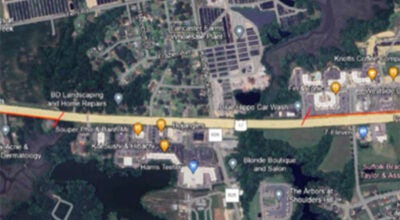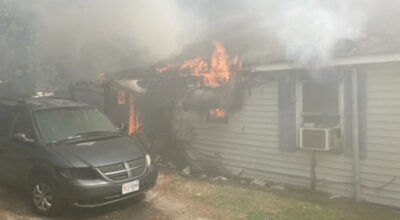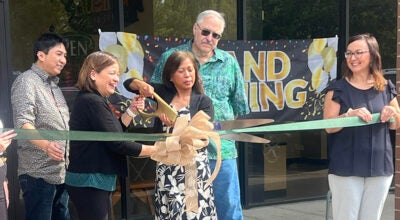Governor extends elective surgery ban
Published 9:34 pm Friday, April 24, 2020
|
Getting your Trinity Audio player ready...
|
Elective surgeries will be banned for at least another week, though the Virginia Hospital and Healthcare Association said it can safely handle them and manage COVID-19 cases.
“My top priority is protecting public health, and that includes ensuring that our frontline medical staff have the equipment they need to stay safe as they treat Virginians who are sick,” Gov. Ralph Northam said in a statement extending his public health emergency order through May 1. “We have increased our supply of PPE (personal protective equipment), but before we allow elective surgeries to resume, we must first be assured that the doctors, nurses and medical staff who are fighting this virus or conducting emergency surgeries have the necessary supplies.”
The order had been set to expire Friday.
Northam and State Health Commissioner Dr. Norman Oliver are working with hospitals and other medical facilities to safely ease restrictions on non-essential medical procedures while ensuring an adequate supply of PPE.
However, the association said in an April 18 letter to Northam that hospitals across the state have nearly 6,000 open beds and 2,200 unused ventilators. It said 21 percent of the 2,865 ventilators available are in use by both COVID-19 and non-COVID-19 patients. At the time of the letter, the association said it had 1,301 COVID-19 patients — confirmed positive cases, as well as those with pending tests — in hospitals across the state.
It estimates that 60,000 people in the state have had non-urgent inpatient and outpatient medical procedures canceled in the last month, with 15,000 procedures being canceled every week.
“As this crisis has evolved, we have gained a better understanding of our capacity to meet the needs of COVID-19 patients,” said association President Sean T. Connaughton in a letter to Northam. “We believe we have the capacity to treat these patients now and as the disease progresses, while at the same time safely providing care for Virginians in need of non-urgent, but medically necessary care unrelated to COVID-19.”
The association said it had distributed PPE to frontline healthcare workers and expanded testing capacity to treat COVID-19 patients.
He said officials should be mindful of the many people who have delayed care for chronic conditions and non-urgent medical needs.
“We are concerned that continuing to delay their care while we have available capacity to address and/or stabilize their conditions will have long-term negative impacts on health across the Commonwealth,” Connaughton wrote.
Northam’s March 25 Order of Public Health Emergency Two banned procedures and surgeries requiring PPE at hospitals, freestanding endoscopy centers, physicians’ offices, as well as dental, orthodontic and endodontic offices.
Connaughton said that ban, along with its members’ efforts to expand hospital capacity, “has led to a tremendous availability of beds at our hospitals.”
Northam noted that the order does not apply to emergency procedures, and it also does not apply to outpatient visits in hospital-based clinics, family planning services or emergency needs.
“Hospitals continue to treat emergency patients and perform essential surgeries, and Virginians should feel safe going to hospitals if they are experiencing a medical emergency, such as a heart attack,” Northam said.
Dr. Michael Hooper, vice president of medical affairs for Sentara Norfolk General Hospital, said during a virtual public health panel discussion Thursday with Eastern Virginia Medical School that there is a difference between truly elective surgeries that can be delayed for an extended period without a health consequence, and surgeries that, by putting them off, could cause significant health concerns.
“We’re worried that having canceled them and putting them off is putting people’s health at risk,” Hooper said. “We are looking at those right now, along with the physicians who are responsible for those, and we are trying to get some of those back through the system.
“We’re still working with the state, who has a mandate not to do truly elective surgeries, and we’re being very careful that we respect that. But also, (we) are looking through all those cases and trying to make sure that we don’t hurt people by holding off on those.”






